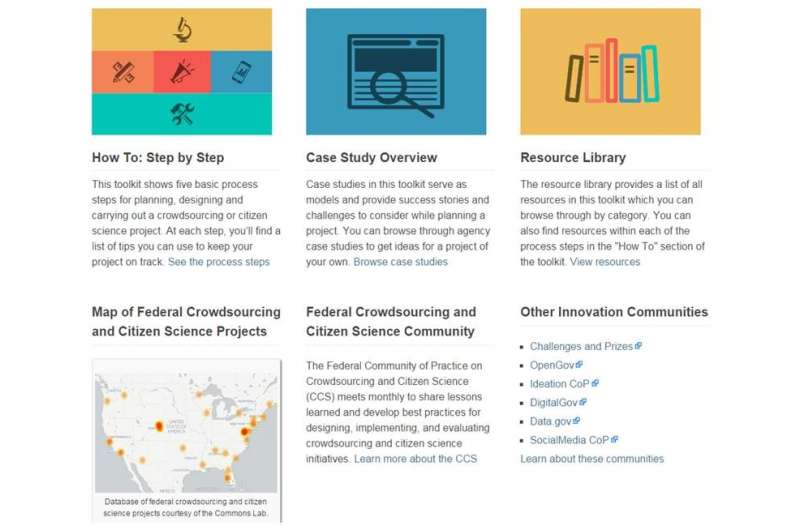Coop's Scoop: Federal Citizen Science Tool Kit on next #CitSciChat

Senator Chris Coons (Delaware) has made it unambiguously clear that federal agencies should embrace crowdsourcing and citizen science. Senator Coons introduced the Crowdsourcing and Citizen Science Act, the first proposed bill to clarify that all military branches, commissions, and executive branch agencies have the authority to harness the expertise of the public to more effectively carry out their missions.
Governance practices change with the economic basis of society, which are varied and change over time. After the transition from hunter-gatherers to agrarian society, there was a shift to industrial societies. Now these classifications are proliferating with the most recent shift to an information society, as well as a network society. The newest economies are mediated by communication technologies, in which sharing information and the production of knowledge are key commodities.
A prominent feature that shapes civilization is overlooked when we define a type of society by its dominant economic sector. That feature is leisure time. The quality of humanity's future may depend less on what people do on the job and more on what people do off the job. An individual's most valuable expertise may be put to use after punching out of the employment clock. Millions spend their non-work time assisting in scientific research, a process known as citizen science.
Citizen science is a story repeated over and over again. When ornithologists need data spanning states and countries, they ask bird watchers. When entomologists want information about bee pollinators in cities, they ask gardeners. When meteorologists want to forecast fine-scale patterns in weather, they draw on observations by people with rain gauges. When people want to know whether a neighboring industry is polluting their air or water, they collect and analyze samples with home tests kits, send samples to professional labs, or make hardware alternatives. Citizen Science has been an independent innovation in a wide range of disciplines, which goes to show how science needs the public just as the public needs science.

Over 40 Federal agencies recognize the power of the non-work time of the public in producing new knowledge. These agencies belong to the Federal Community of Practice on Crowdsourcing and Citizen Science (FCPCCS). Representatives from these agencies developed an open, online tool kit to guide agencies (and others) in best practices for the design and implementation of citizen science projects to meet agency missions.
Last week, colleagues and I celebrated the tool kit at a citizen science forum, hosted by the White House Office of Science and Technology Policy and the Domestic Policy Council, called "Open Science and Innovation: Of the People, For the People, By the People."
Industrial societies function with a high division of labor, but today we are networked to manage information exchange to collectively make discoveries, irrespective of one's type of employment. Senator Coon's bill will help ensure that our government agencies open doors to public participation in order to reach our collective potential. With citizen science, we can transition to a collaborative society.
Provided by Public Library of Science
This story is republished courtesy of PLOS Blogs: blogs.plos.org.


















